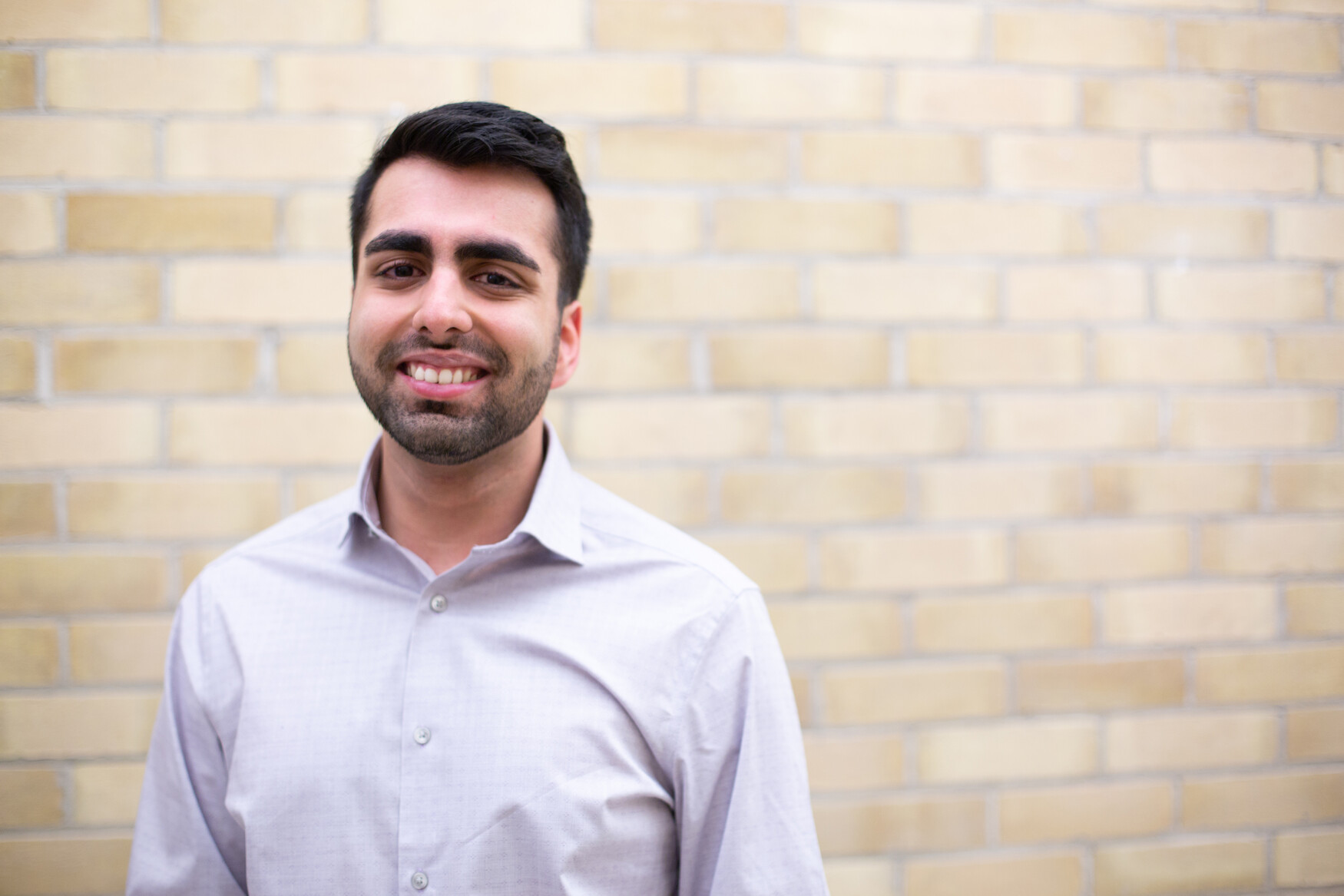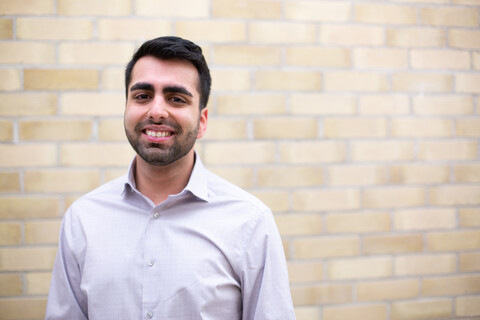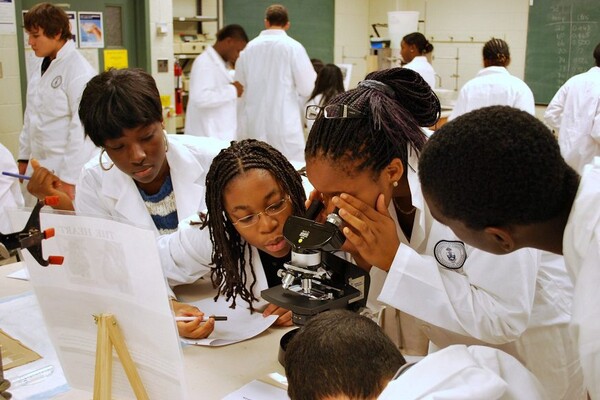Main Second Level Navigation
Breadcrumbs
- Home
- News & Events
- Recent News
- UofTMed Alum: Letting My Inner Voice Speak
UofTMed Alum: Letting My Inner Voice Speak

Arnav Agarwal

I was fresh into my first few months of my residency training in internal medicine. I had been warned about what to expect: long hours, challenging patient cases, stress. Now it was showtime, and weeks were almost blending into one another.
My days as an undergrad and medical student had been filled with academic research projects, grassroots advocacy campaigns, extracurricular activities, narrative writing and medical education initiatives, all alongside heavy coursework and clinical duties. As I began residency on July 1, I made a conscious decision: I wanted to be the best doctor I could be, and that meant making time on the wards my only priority.
Yet, even though I was doing less with most of my time spent on the wards, the days somehow felt shorter and were finishing faster.
“What moments have stuck with you the most over the last few months?” a mentor asked me in September. It was the first time I had been asked — I had not even stopped to ask myself. I paused briefly, then replied, “I don’t know. There have been a whole lot; yet somehow, I can’t think of one.”
It was not a lack of profound experiences. It was not a lack of incredible clinical learning. It was a lack of hitting pause to let experiences sink in, and remind myself what was valuable to me.
I’ve always been committed to nurturing myself as the kind of physician who puts the values and preferences of my patients first and invests everything I can into their care. But I never accounted for the hidden cost of these commitments: the challenge of holding onto the pieces of me in the process that made me me.
I turned to writing to pull those pieces back together. First just on sticky notes and Microsoft Word documents, then in a journal. I came home every day and put pen to paper, eventful or uneventful. As I wrote, I deconstructed and reconstructed moments in the day I’d tucked away without a second thought — and somehow understood each one better.
I spoke to many colleagues and close friends in those months. Some told me how difficult it was to have less time with family. Others shared how a patient’s death or poor outcome had devastated them. Some others spoke about how they were developing new skills and finally knew they had made the right decision in choosing medicine as a career.
We all had stories — and we wanted to share them.
I decided I would start with me. I began sharing my stories and perspectives online with friends and colleagues through CMAJ Blogs, Healthy Debate, media outlets and other forums. The opportunity to reflect and share was refreshing. The response and shared enthusiasm from colleagues and friends was revitalizing.
At the same time, intriguing cases on the wards raised important clinical questions that captivated my research mind. Interacting with some of the most vulnerable individuals in our societies on the wards fueled a fire to support and lead grassroots advocacy efforts around their healthcare rights. Working alongside inspiring mentors made me immerse myself in understanding different teaching techniques and model the same for my junior trainees. Toronto was filled with opportunities to pursue these passions — I was incredibly fortunate. And as I did, I was reminded: I loved medicine because it is so much more than just the medicine. These parts were just as important to being the doctor I envisioned myself being.
My hours on the ward didn’t change. Yet, days slowed down. The blur gained more clarity. It was showtime.
Fast-forward two years. I am on the frontlines of the COVID-19 pandemic alongside brave colleagues and mentors. I am also a researcher, co-leading rapid international evidence synthesis efforts to impact clinical practice. I am a storyteller, collecting perspectives from colleagues and friends about what matters to them during a time of immense change. I am an advocate, pushing for healthcare access for our society’s most vulnerable in the face of a virus that does not discriminate based on having or not having an OHIP card.
Yet, I am at peace with myself. In the storm of the pandemic, I’m at peace with what I’m doing to lift up my patients and their families. And I am more connected with myself — and others — than ever. This is exactly the kind of doctor I wanted to be.
If there was ever a time to look inwards and reflect, it is challenging times like these ones. If there was ever a time to reflect on your passions and put them into action to make a difference, it is now.
I look back at one of the first pieces I wrote in 2018 as I started residency, titled “Twenty-Six Hour Days”. It is more relevant today than ever, in the face of the pandemic. Let us remember to take care of ourselves as we continue putting our best foot forward to take care of others.
Twenty-Six Hour Days
Twenty-six-hour days
pacing the hospital wards.
Day turns night turns day—
if it weren’t for a momentary glance at the clock,
I wouldn’t know otherwise.
I scribble the letters “AKI”
across the lined A4 sheets in my charts.
My last drink was 12 hours ago.
By some stroke of irony,
it ceases to matter anymore.
The regular family banter and friendly exchange
lights up my phone screen, unanticipated—
unwanted.
I swipe it away quickly without a second glance,
without allowing myself more than a transient thought—
I have no space for this: for me.
I had dreamt about this all my life.
Stethoscope around my neck,
a physician’s ID badge hanging against my chest,
caring for patients.
Was I not living the dream?
I look around me
to find others—my colleagues, my juniors,
toiling through their EMRs and paper charts.
I wonder if they ever glance back and wonder the same:
am I alone in struggling through this?
Can they hear me?
They all seem to fit in the jigsaw of the hospital,
their confident voices drowning me out as I search for mine.
Posterchild for ‘imposter syndrome,’
I wonder if I’m the wrong piece for this puzzle.
I continue my rounds—
patient by patient, room by room,
listening closely to the crackle of drowning lungs,
convincing myself I appreciate the weak double waveform of a neck vein impulse,
poking a tender belly and digging into the intimacies of a relative stranger’s bowel patterns.
Along the way, I console an anxious family member,
hold the hand of a sick patient left in solitude,
explore the delicate prognosis of an end-stage cancer patient,
MSIGECAPS my way into the deepest corners of a struggling patient’s journey.
Is your mood okay?
Are you sleeping okay?
Are you still interested in your hobbies?
Are you feeling guilty?
I look around the room for a moment,
catch my reflection in the window.
I can’t help but wonder:
what would my answers be?
I stop myself short of answering—
I feel guilty for wondering.
Twenty-six-hour days
pacing the hospital wards.
Day turns night turns day.
If it weren’t for just a moment’s reflection
or an occasional external unwanted reminder:
I’d forget about me.
Dr. Arnav Agarwal, MD ’18, is an internal medicine resident. You can read more about COVID-19's long-term impact on health care and health care professionals in the next issue of UofTMed magazine, which will hit inboxes this July. If you'd like to receive a digital copy along with other UofTMed news, please subscribe to the MedEmail mailing list.
News


